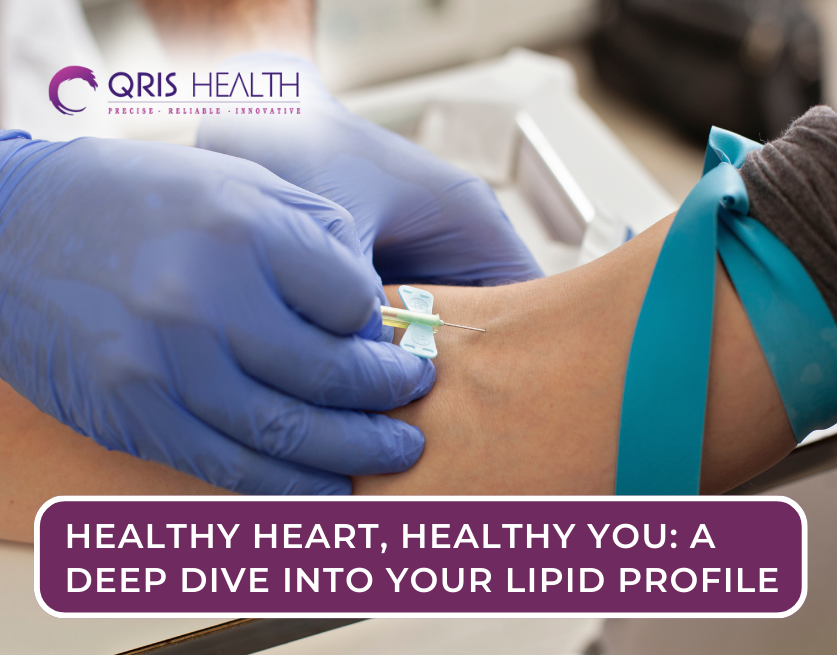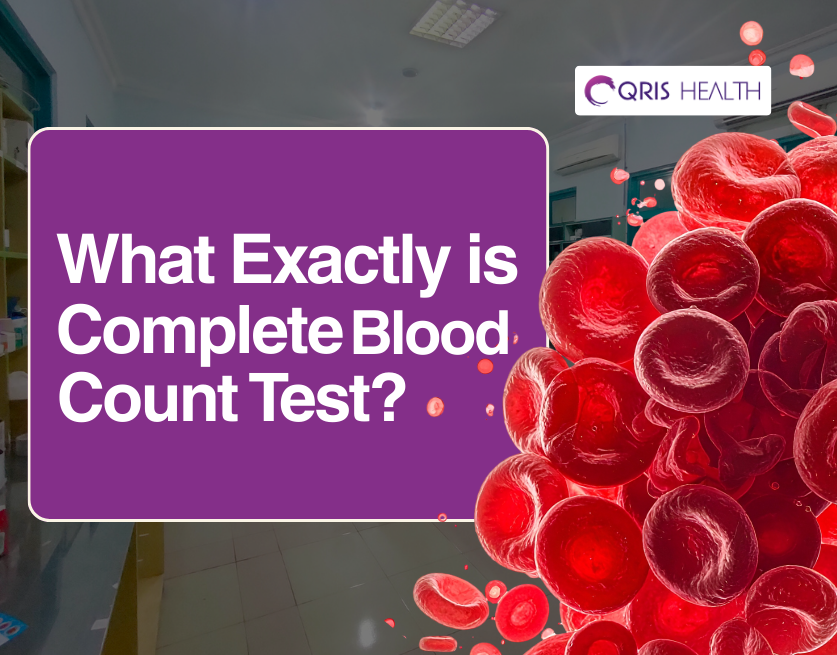Your heart, the power source that never turns off, needs love and care. As with any engine, routine maintenance is required to make sure everything is running smoothly. Lipid Profile Test, sometimes referred to as Lipid Panel Blood Test, is a useful tool in determining the condition of your heart through checking the fats (lipids) in your blood. Looking for a “Lipid Profile Test Package in Delhi” “Lipid Profile Test Near Me” or “Lipid Profile Test Price”? This blog will help you! Let’s take a closer look at lipid profiles and what you can do to improve your heart health.
Unveiling the Mystery: The Building Blocks of Blood
Lipids are an extensive group of compounds that consist of Cholesterol test, Triglycerides, and Fatty Acids. Even though they are beneficial for the human body, moderation is key. Let us envision lipids as tourists of sorts in the river of blood within our system. Some are regarded as undesirable if they persist in circulation, being associated with obstacles on the road of arteries such as LDL cholesterol. Some, for instance, HDL cholesterol are beneficial in that they act as tow trucks that remove such obstacles and ensure that blood flows unhampered.
Demystifying the Lipid Profile Test: What it Measures
Precisely, a Lipid Profile Test is an assessment of various aspects of your blood that can be used to measure your lipid levels.
Total Cholesterol: This is the total number of cholesterol particles in the bloodstream, LDL. LDL Cholesterol or “bad Cholesterol”, HDL Cholesterol or “good Cholesterol,” and so on.
- LDL Cholesterol (Low-Density Lipoprotein): Known as low-density lipoprotein or LDL, or ‘bad’ cholesterol, it is, in fact, the cholesterol that transports cholesterol to your arteries. LDL cholesterol is referred to as the “bad” cholesterol because when its levels are high in the blood, it causes cholesterol to deposit in the inner lining of the arteries and ultimately form plaques. In the long run, the plaques may thicken the walls of the arteries and constrict the arteries where the heart is deprived of the required blood supply and is at a higher risk of diseases of the heart and the brain.
- HDL Cholesterol (High-Density Lipoprotein): Sometimes called ‘good’ cholesterol, this molecule serves the purpose of a garbage truck that collects cholesterol that is not required anymore either by the arteries or other organs and then transports it to the liver where it is metabolized. HDL levels particularly are widely considered to be beneficial to the health of the heart.
- Triglycerides: The other group of lipid is triglycerides, which is a kind of fat that can be stored in the human body as fuel. While our bodies need a certain amount of triglycerides, high levels of them are known to cause the likelihood of heart disease and other complications.
Understanding Your Results: The Lipid Profile Normal Range
The Lipid Profile Test will let you know how your cholesterol and triglyceride levels compare to average healthy levels. However, these ranges can vary depending on age, gender, as well as overall health state of a person.
Here's a general guideline to keep in mind:
- Total Cholesterol: Ideally, the level should be below 200 mg/dL.
- LDL Cholesterol: For most adults, an LDL level below 100 mg/dL is deemed ideal.
- HDL Cholesterol: Next, the data shows that higher levels above 60 mg/dL are useful.
- Triglycerides: An LDL level below 150 mg/dL is normal.
Please understand these are just general guidelines that you can follow when trying to lose weight. The patient should also mention some of the results with his/her doctor. They can also tell you what your particular numbers mean when it comes to your general health and risk, like family history, smoking, and obesity. From this, they are in a position to advise the necessary course of action which might be a change in diet or prescription of medicine
Beyond Numbers: Factors Affecting Your Lipid Profile
Genetic factors part way in determining your lipid profile but your lifestyle does way more to these levels Here's what you can do to keep your heart healthy:
Diet:
- Reduce intakes of saturated fat, trans fat, processed food, and sweetened beverages. The following are causes of unfavorable cholesterol levels.
- Pay special attention to an apical diet with a preference for fruits and vegetables, whole grains, lean meats, and fish. These foods contain nutrients and healthy fats that are necessary to support your heart health.
- Exercise: Seeing that proper physical training like moderate exercise on most of days of the week can be of great help in enhancing your heart health and lipid profile. As exercising regularly improves, one's LDL cholesterol reduces while HDL cholesterol increases.
- Weight Management: A person should always make sure that he or she keeps off from getting engorged with cholesterol since it increases the rates of other diseases.
- Smoking Cessation: Smoking is found to directly affect the development of heart diseases and also influences detrimental cholesterol levels. Yet one of the most beneficial things that you can do for your heart is quit smoking.
- Stress Management: As mentioned, chronic stress is also conveyed as elevating the levels of LDL cholesterol. Yoga and meditation will help mainly with stress and, therefore, could be helpful to integrate into everyday routine.
Taking Charge: Why Regular Lipid Profile Testing Matters
Early detection and management are crucial for maintaining a healthy heart. The frequency of your Lipid Profile Test depends on your individual risk factors. Your doctor will recommend a testing schedule that's right for you.
Looking for a Lipid Profile Test Package in Delhi or a "Lipid Profile Test Price Near Me"? Consider Qris Health! We offer affordable and convenient Lipid Profile Test Packages, making it easy to prioritize your heart health.
Investing in Your Future: The Power of a Healthy Lipid Profile
It is thus crucial to find out what all the figures in your Lipid Profile Test mean and understand how you can modify your lifestyle to prevent the development of heart disease or other chronic illnesses.
Here's a deeper dive into the benefits of a healthy lipid profile:
- Reduced Risk of Heart Disease: By taking needed actions to manage your cholesterol, you can prevent the buildup of plaque in the arteries and hence reduce the incidents of heart attack and stroke.
- Improved Blood Flow: Cholesterol is a vital thing in our body since it has the function of enhancing blood circulation in our body for the delivery of oxygen and nutrients to different organs and tissues.
- Enhanced Energy Levels: Regardless of your problem, if your heart as well as the circulatory system is healthy, you are likely to be full of energy and healthy.
- Lower Risk of Other Chronic Conditions: A healthy lipid profile also lowers your chances of getting type 2 diabetes, some types of cancer, and peripheral artery disease (PAD).
You're making an investment in a longer, healthier life by being proactive in achieving a good cholesterol profile. Live a heart-healthy lifestyle, take the Lipid Profile Test frequently, and give yourself the tools you need to achieve your greatest life!


 Health Risks of Inactive Lifestyle.jpg)
 Health effects of smoking.jpg)


